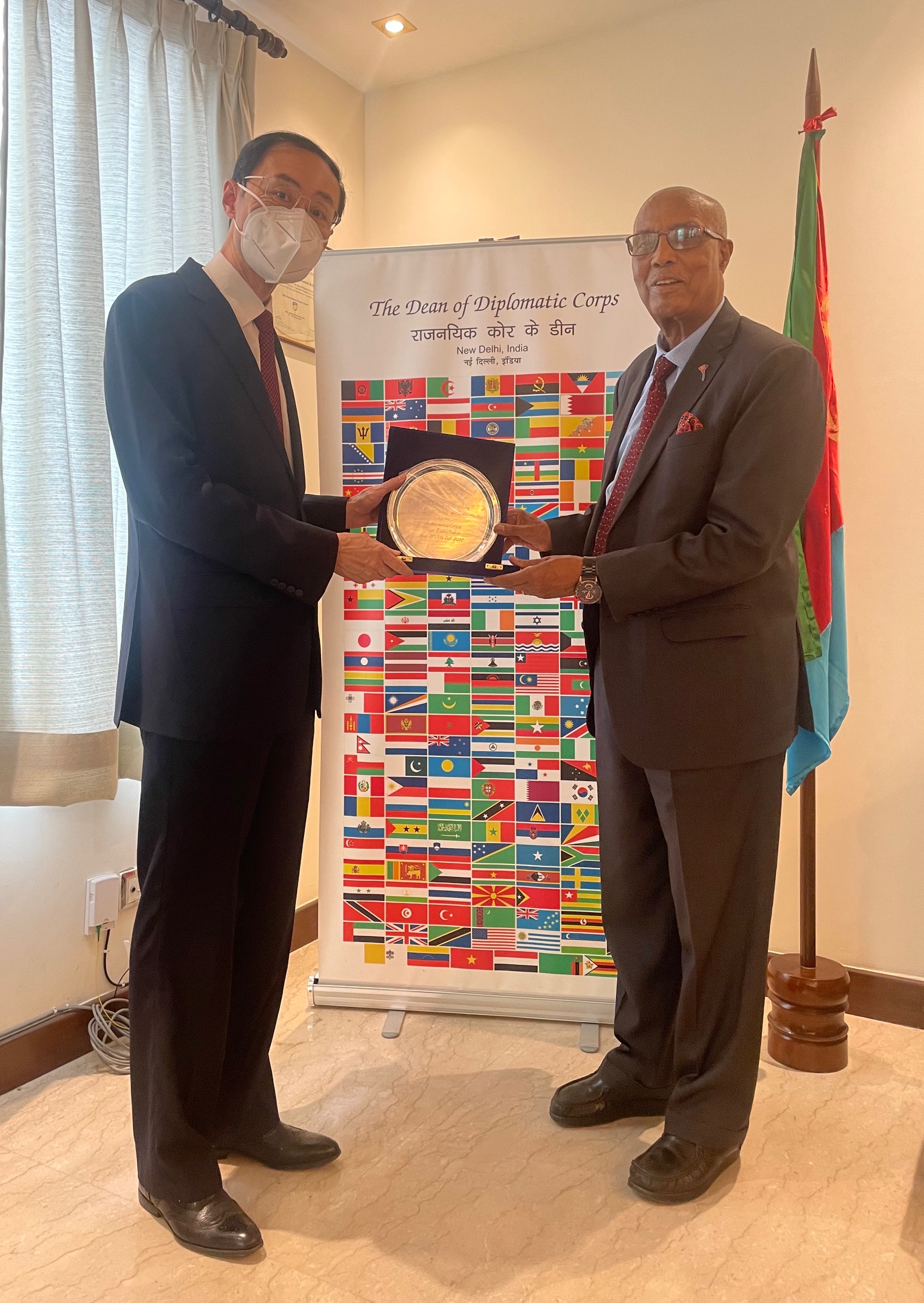
Chinese Ambassador to India H.E. Sun Weidong bid farewell to the Dean of Diplomatic corps in India, Eritrean Ambassador H.E. Alem Tsehaye Woldemariam recently. Ambassador Sun Weidong expressed appreciation for the support and assistance given to the Chinese side during H.E. Alem Tsehaye Woldemariam’s tenure as the Dean of Diplomatic corps in India, highly cherished the friendship established with H.E. Alem Tsehaye Woldemariam and other Heads of Missions, and hoped that the relations between China and Eritrea would continue to develop and the friendship between the two countries further strengthened. H.E. Alem Tsehaye Woldemariam regretted the leaving of Ambassador Sun Weidong, and stressed this meeting which was specifically arranged before his departure fully demonstrated the profound friendship between China and Eritrea. He wished Ambassador Sun all the best in his new endeavour.
|